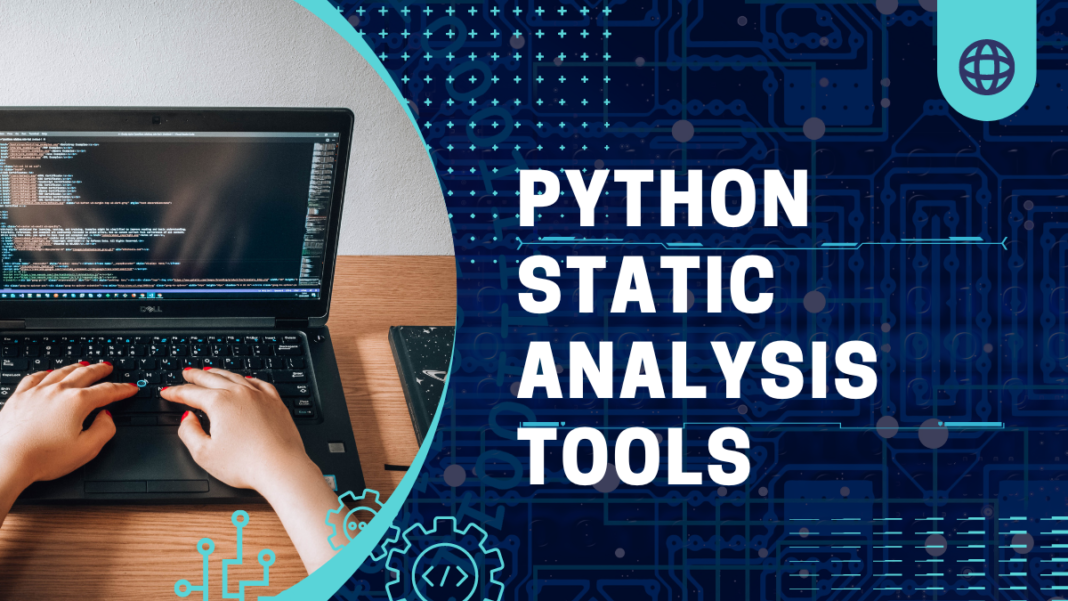Python is popular for its versatility and seamless user experience and has gained immense popularity as a go to programming language for a wide range of applications. However, as projects scales, they grow in complexity as well. This makes it challenging to maintain the code quality, identify potential issues, and ensure the security of an application.
This is where the Python static analysis tools come to the rescue. These powerful tools analyze the source code without executing it, offering developers valuable insights to improve code quality, detect errors, enforce coding standards and much more.
As mentioned earlier, these static analyses analyze the code without running the code. It allows developers to catch the potential problems early in the development process. In turn, it reduces the chances of bugs, vulnerabilities, and Maintenance. With the help of these tools, you can automate the process and make it more efficient and effective.
Helping programmers write secure, dependable, and high-quality code is the core objective of Python static analysis tools. Beyond only verifying syntax, these tools offer more in-depth analysis, such as type checking, code style enforcement, error detection, code complexity measurement, and security vulnerability discovery. These technologies enable developers to streamline their work, make sure best practices are followed, and reduce the time and effort required for maintenance and troubleshooting.
Let’s look at the benefits provided by these static analysis tools.
Identify Bugs in Early Stage
Early in the software development cycle, it can assist in identifying defects, type checks, and frequent security vulnerabilities, lowering the likelihood of later, costly, and time-consuming solutions.
Enforces Coding Standard
Static code analysis can assist in producing more maintainable code that is simpler to comprehend and debug by enforcing coding standards, style manuals, and best practices.
Code Complexity Management
Static analysis tools measure code complexity, helping developers identify and optimize complex code segments, improving maintainability, reduced technical debt, and enhanced performance.
Type Safety Enforcement
Python’s Mypy static type checking enforces type safety, catches type-related mistakes, improves code dependability, and promotes team collaboration.
Security Enhancement
SQL injection and cross-site scripting (XSS) vulnerabilities are identified by Bandit and other security-focused static analysis tools, enabling developers to fix them and safeguard their apps and users proactively.

Customization & Configurability
Tools for static analysis in Python offer programmable options, allowing developers to adjust the analysis to meet their needs. This adaptability guarantees coding standards compliance and a laser-like attention on pertinent parts of code quality.
Hire python developers who can leverage these python static analysis tools to boost code quality and security of the python applications. Now that we have seen which are the most popular static analysis tools available in the market.
Python Static Analysis Tools
Pylint: Ensuring Code Excellence
Known for its capacity to carry out thorough codebase analysis, error checking, and enforcement of coding standards, Pylint is a commonly used Python static analysis tool. It provides insightful comments on a variety of potential problems, including syntax mistakes, naming conventions, unnecessary variables, and code complexity. It is simple to add into the development workflow because it connects with well-known development environments like PyCharm and Visual Studio Code.
Pylint’s extensive adjustable settings allow developers to fine-tune the analysis according to their unique preferences for coding styles, project requirements, or accepted norms. By utilizing Pylint’s features, developers may encourage uniform coding standards, find potential issues early in the development process, and maintain excellent code quality.
Flake8: Comprehensive Code Analysis
PyFlakes, pycodestyle (formerly known as pep8), and the McCabe complexity checker’s capabilities are combined in Flake8, a potent Python static analysis tool. It provides developers with insightful knowledge into the quality of Python code through its thorough language analysis. It enforces coding style rules, detects complex code segments, and performs syntax checks to assure code correctness and catch frequent errors.
Developers can set or disable particular inspections based on the needs of their projects thanks to its modularity and configuration. Since it is compatible with widely used code editors and build systems, integrating it into current processes is simple. By following Flake8’s recommendations, developers can improve their code’s consistency, readability, and maintainability, resulting in more productive development and simpler code maintenance.
Mypy: Advancing Type Safety
Developers can add type annotations and have their code checked for type-related problems using the static type checker for Python called Mypy. As a result of guaranteeing type safety, Mypy increases code reliability and decreases errors brought on by type inconsistencies. With Mypy, programmers may create more enduring code, improve code comprehension, and promote teamwork. In order to give developers real-time feedback on typing errors, Mypy interfaces seamlessly with well-known editors and build systems. Furthermore, it provides progressive typing support, allowing developers to gradually include type annotations into existing codebases.
Prospector: All-in-One Code Analysis
Pylint, PyFlakes, pycodestyle, and Mypy are just a few of the powerful static analysis tools that Prospector combines to offer a complete code analysis solution. Developers can identify a variety of issues in a single analysis pass with Prospector’s holistic picture of the codebase that is provided by combining the results of several tools. By allowing or eliminating particular criteria, Prospector’s analysis can be tailored by developers to meet the needs of various projects. The development workflow can easily include Prospector because of its integration with a variety of editors and CI/CD platforms.
Pyre: Type-Safety in Python Development
Pyre, a type checker, specializes in identifying inconsistencies and type mistakes in Python code. It does static analysis to determine types and spot potential problems such type inconsistencies, omitted function arguments, and inconsistent assignment rules. Pyre allows programmers to increase type safety, catch potential flaws before they execute, and make their code more right. Since Pyre supports connection with well-known editors and build systems, it is simple to use in the development workflow. It’s appropriate for all sizes of projects thanks to its effective handling of big codebases. As a result of Pyre’s focus on type checking, Python programs become more durable and dependable, thus improving overall code quality.
Bandit: Safeguarding Your Code
Bandit is a static analysis tool for Python code that focuses on security and is made to find common security flaws. It allows developers to proactively find and fix these flaws early in the development cycle, lowering the chance of exploitation. Bandit’s scanning skills go beyond simple pattern matching by enabling it to examine the context in which potential vulnerabilities arise.
Bandit’s role in guaranteeing code security is further strengthened by integration with well-known CI/CD platforms. them can grasp the nature of the vulnerabilities and take the necessary corrective action thanks to Bandit’s reports, which give them precise information on discovered security concerns. Bandit is a useful tool for Python programmers looking to protect their code from widespread security flaws.
Conclusion
Python static analysis tools enhance the code’s security, maintainability, and quality. By utilizing these tools, developers can find faults, uphold coding standards, spot security flaws, and improve type safety. A deeper understanding of the codebase is made possible when you hire dedicated developers who can use tools like Pylint, Flake8, Bandit, Mypy, and Prospector, which help to reduce the likelihood of introducing bugs or security vulnerabilities. By incorporating these tools into the development process, teams may foster collaboration and create a culture of high-quality code. The use of Python static analysis tools can dramatically improve the overall quality and security of your Python applications, resulting in more durable and dependable software solutions, regardless of how big or little the project or codebase you are working on is.



